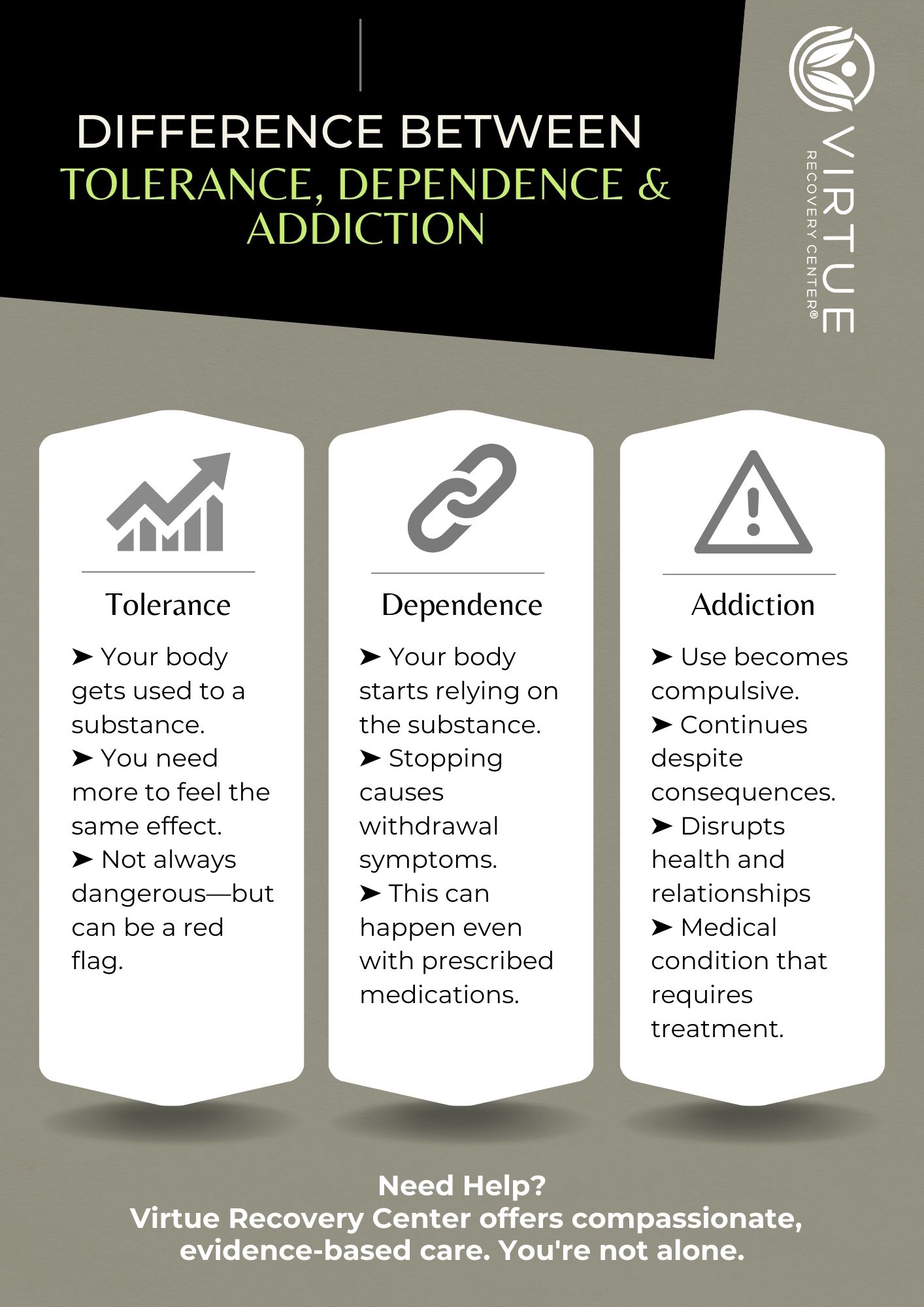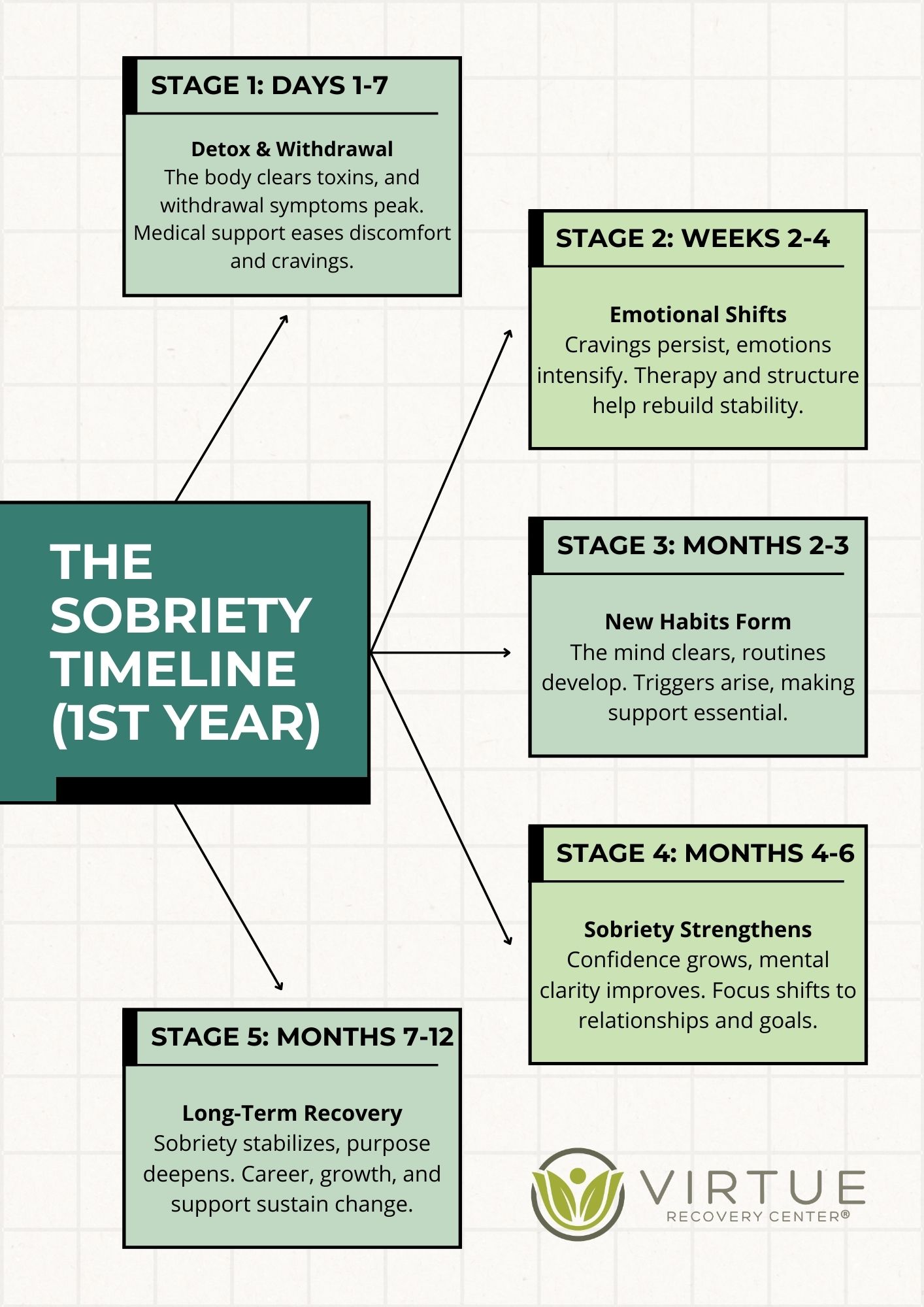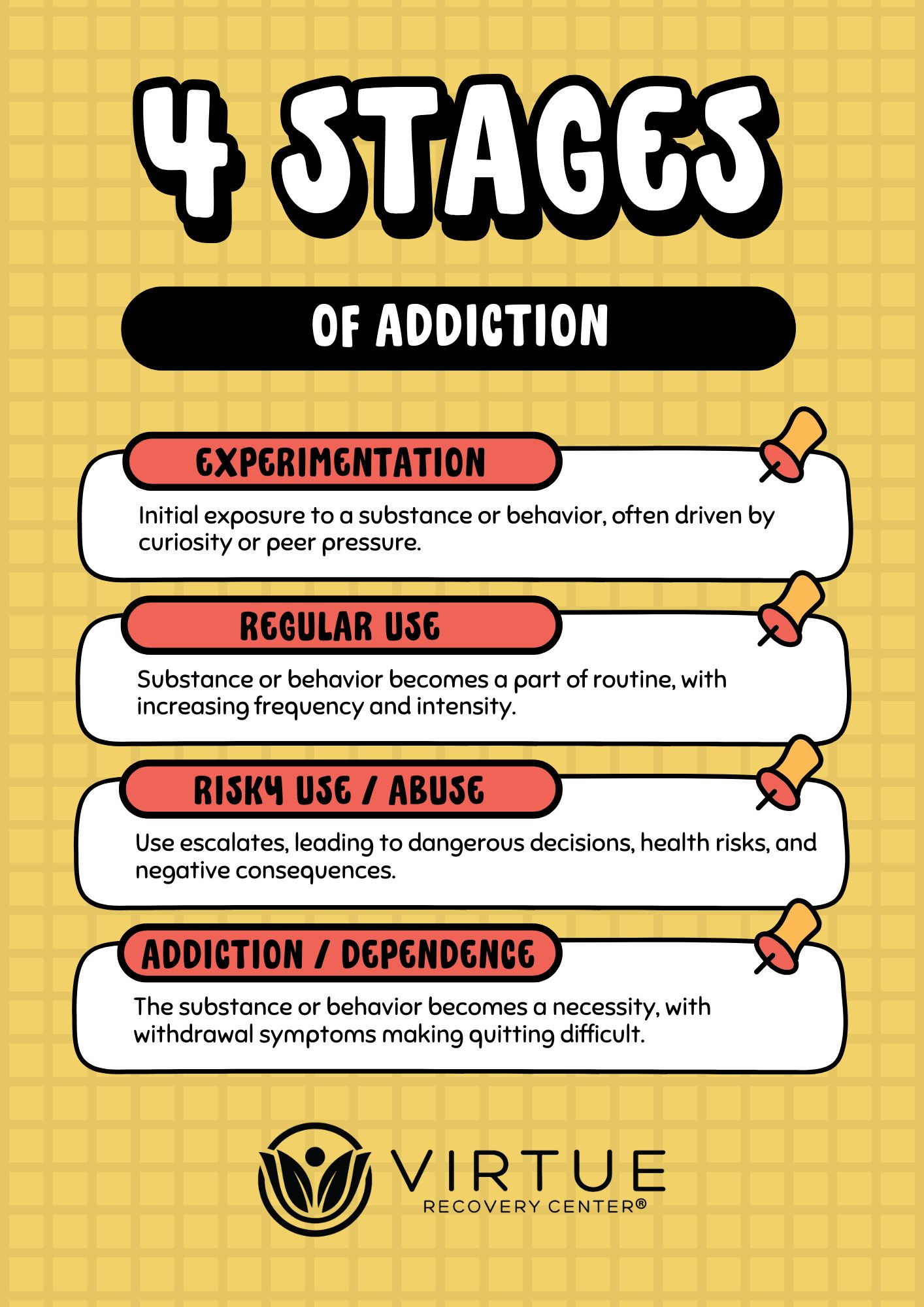 Virtue Recovery Las Vegas offers cognitive-behavioral therapy (CBT) to treat those struggling with substance use disorders. Our therapists provide personalized treatment plans that cater to each client’s unique needs. By addressing the root causes and conditions that lead to addictive behaviors, our team can help clients work toward their recovery goals.
Virtue Recovery Las Vegas offers cognitive-behavioral therapy (CBT) to treat those struggling with substance use disorders. Our therapists provide personalized treatment plans that cater to each client’s unique needs. By addressing the root causes and conditions that lead to addictive behaviors, our team can help clients work toward their recovery goals.
We aim to help our clients transform their lives through treatment and therapy. Call 866.520.2861 today to learn more about our addiction therapy services and what we can do to help you change your life.
What Is Cognitive-Behavioral Therapy?
CBT is a form of psychotherapy that uses cognitive and behavior modification techniques to address mental health issues. It helps clients recognize how their thoughts and behaviors can influence their emotions. We have seen great success with CBT, as it is an evidence-based treatment proven to help treat substance use disorders.
What to Expect from CBT
Cognitive-behavioral therapy services mainly deal with thoughts, feelings, and behaviors. You can expect the following from cognitive-behavioral therapy:
Restructure Your Thoughts
Through cognitive restructuring, CBT helps identify and challenge any negative thinking patterns contributing to substance use.
Change Your Emotions
To help clients manage their emotions in healthy ways, we offer coping skills such as mindfulness and relaxation techniques.
Modify Your Behaviors
In addition to modifying the behaviors associated with substance abuse, our therapists can assist clients in finding new activities and interests that are meaningful and rewarding.
At Virtue Recovery Las Vegas, we provide compassionate care backed by evidence-based therapies to help our clients achieve their recovery goals. Our team is dedicated to helping you or your loved one reach long-term sobriety.
How Does Cognitive-Behavioral Therapy Work?
CBT works by helping people identify and modify any negative thoughts or behaviors that may be causing distress. During sessions, our therapists help clients develop coping skills and strategies for managing their emotions. We also provide support and guidance as individuals learn new skills to help them resist cravings and avoid substance use.
Cognitive-behavioral therapy aims to help clients replace negative thoughts and behaviors with positive ones. Through this approach, individuals can create a sense of self-awareness that allows them to gain control over their destructive patterns. In time, they will be able to break free from the grip of addiction and live a healthier, more fulfilling life.
Benefits of Cognitive-Behavioral Therapy Services
CBT can offer many benefits to those struggling with substance use disorders. Among the many advantages of participating in cognitive-behavioral therapy as part of a recovery program include the following:
- Increased insight into addiction and addictive behaviors
- Improved coping skills for managing emotions in healthy ways
- Reduced cravings and urges to use substances
- A better understanding of triggers that lead to substance misuse
- Improved problem-solving and decision-making skills that can be used to resist cravings
- Enhanced self-esteem and a sense of self-efficacy
At Virtue Recovery Las Vegas, we are committed to helping clients reach their recovery goals. Our cognitive-behavioral therapy services provide the tools and techniques individuals need to transform their lives.
Start Cognitive-Behavioral Therapy at Virtue Recovery Las Vegas
If you or a loved one struggles with addiction, reach out to us for evidence-based CBT, personalized care, and a luxurious treatment environment. Our experienced staff and modern approach to addiction recovery provide clients with the tools and support they need to achieve long-term sobriety. We prioritize individualized attention, community wellness services, and an unwavering commitment to each client’s healing journey.
Virtue Recovery Las Vegas – Substance Use Disorders is ideal for individuals seeking comprehensive and effective addiction treatment. Please contact us today at 866.520.2861 or complete our online form to get started.
FAQs on Cognitive Behavioral Therapy
What conditions can CBT treat?
CBT is effective for a wide range of conditions, including depression, anxiety disorders, PTSD, OCD, and substance use disorders. It can also help with stress management and sleep disorders.
How long does CBT treatment typically last?
CBT is usually a short-term treatment, lasting between 8 to 20 sessions. However, the duration may vary depending on individual needs and the complexity of the issues being addressed.
What are the core principles of CBT?
CBT is based on the principles that thoughts, feelings, and behaviors are interconnected. By changing negative thought patterns, individuals can alter their emotions and behaviors.
How is CBT different from other therapies?
CBT is more structured and goal-oriented than many other therapies, focusing on present issues rather than past experiences. It emphasizes practical strategies and skills to address specific problems.
Can CBT be done online?
Yes, CBT can be effectively conducted online through video sessions, making it accessible for individuals who cannot attend in-person therapy.
What should I expect during a CBT session?
During a CBT session, you will work with a therapist to identify negative thought patterns, set goals, and learn strategies to challenge and change those thoughts. Sessions may include homework assignments to practice new skills.
Is CBT effective for substance use disorders?
Yes, CBT is effective for treating substance use disorders by helping individuals identify triggers, develop coping skills, and change behaviors associated with substance abuse.
Do I need a referral to start CBT?
While referrals are not always necessary, some insurance plans may require one. You can also directly contact a therapist or mental health clinic to begin CBT.
Can CBT be combined with other treatments?
Yes, CBT can be combined with other treatments, such as medication, for a more comprehensive approach. It is often part of a holistic treatment plan for mental health conditions.












